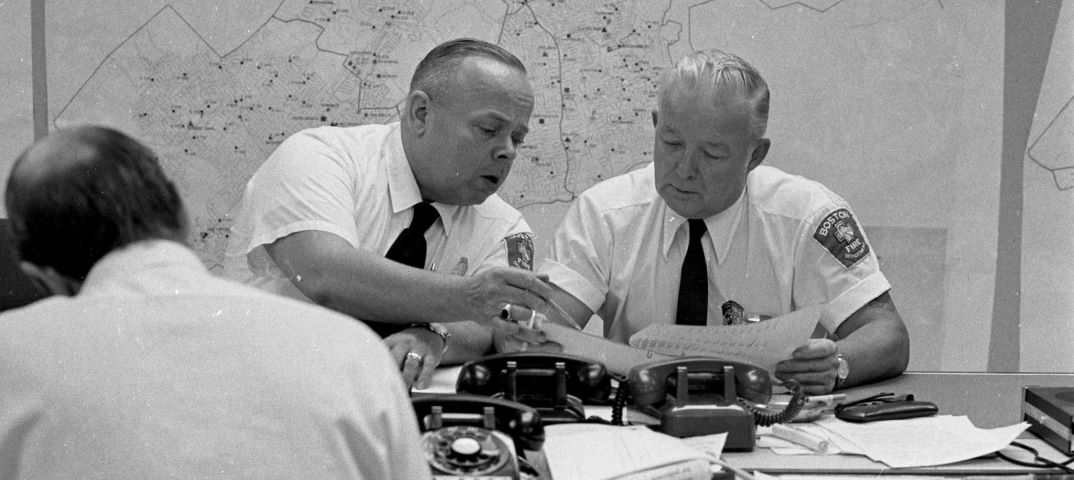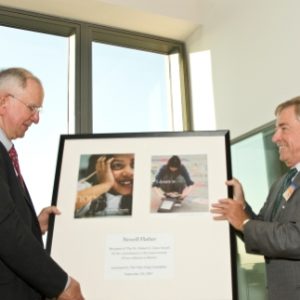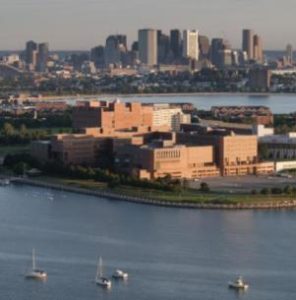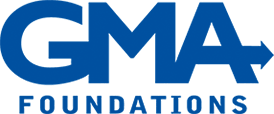
It is exciting when corporate philanthropy moves beyond year-end tax planning and business strategy to strengthening communities and nurturing meaningful relationships. Voices from the Foley Hoag Foundation get to the heart of giving together.
Corporate Philanthropy Stemming from Desegregation Case
It all started 35 years ago over lunch. The question was a tough one. “How do we improve race relations in Boston?” asked Michael Keating, a partner at the law firm of Foley Hoag LLP which had successfully represented the plaintiffs in Morgan vs. Henigan, Boston’s desegregation case. The case is a seminal chapter in the city’s history and part of America’s painful interracial narrative. He was now trying to determine how best to use the funds the firm had received for its work. Both Keating and Newell Flather, who was then in the process of starting GMA Foundations, were active in Boston’s nonprofit community and knew each other well. On a spring day in 1982 they had lunch to discuss how best to use the settlement funds.
The lunch ended with two decisions. First, they agreed that the best way to use the settlement funds was to set up a private foundation—one of the few housed inside a law firm and the first to focus on improving race relations in Boston. Second, the firm was open to GMA serving as staff for the newly formed Foley, Hoag, and Eliot Foundation, thereby earning it the distinction of being GMA’s first client.
Giving Together to Address Inequality

Thirty-five years later, the Foley Hoag Foundation and GMA Foundations are still partnering, together with the law firm and nonprofit leaders, to impact the greater Boston area and beyond. Giving together, the foundation has awarded more than $2 million in grants to more than 300 organizations. It has also expanded its focus to addressing inequality in its various forms, including but not limited to racial, ethnic, or gender disparities. Giving together, the foundation has committed itself to transforming the wrenching events of the past into a promising future.
In celebration of this 35-year relationship, GMA’s Chaletta Huertas interviewed by phone and email corporate staff and trustees of the foundation. GMA is grateful to Michael Keating, Jeffrey Mullan, James Montgomery, Ross Margulies, and Madeleine Rodriguez for their time. A composite of their responses is shown as ‘Foley’ in this edited account of our Q & A:
GMA: What do you personally get out of being involved in the Foley Hoag Foundation?
FOLEY: There were unintended consequences of the Boston desegregation case—dislocation and tensions along racial lines exacerbated—but it was the right case. It was the right decision. The Foley Hoag Foundation allows us to give back to the community, reaching into the neighborhoods that the firm may not necessarily reach.
The firm has been good to us and our families, and the foundation allows us to help both the firm and the community in a way that cannot be replicated.
“Before becoming an attorney and joining the Foley team, I was the development director for a small DC-based non-profit. There I regularly interacted with foundations as we struggled to meet our budgetary goals each year. I took away from that experience a very visceral understanding of the importance of giving – and of a healthy relationship between donors and do-gooders. When Jeff Mullan asked if I would help get the DC side of the Foundation started, I jumped at the opportunity to step back into my old world and give back.” – Ross Margulies, Foley Hoag DC office
GMA: What does the Foley Hoag law firm get out of having a foundation?
FOLEY: Internally, the foundation involves the entire staff—from partners to associates to paralegals to administrative assistants—in grantmaking. This type of internal collaboration exemplifies the firm’s values of giving back, taking care of each other, and coexisting with our community. It reinforces in a tangible way how the firm sees itself and a culture that is rooted in service. Moreover, having a foundation is a good recruiting tool, helping to set the firm apart from its competition. You have to keep in mind that firm staff volunteer their time. Foundation work is not counted as pro bono hours. It is enormously gratifying to know that our colleagues care so much about the foundation and the work that it does that they would devote their personal time.
Externally, the foundation allows our firm to reach beyond the four walls of our office building and into the surrounding communities. Past reviewers are now board members of grantee organizations or regularly volunteer or offer pro bono services. The foundation is not typical legal work that we do so it forces us to look beyond ourselves. This was not the original intent of the foundation, but it has evolved into being a core feature over the years.
GMA: How do the geographic areas of Boston and Washington D.C. benefit from the Foley Hoag Foundation?
FOLEY: The Foley Hoag Foundation began grantmaking in Boston and then two years ago expanded into Washington DC where the firm has another office. Also two years ago, we expanded our focus to addressing inequality beyond racial relations. What has remained unchanged is a desire to see impact. We have always focused on small organizations that are often overlooked by larger funders. Groups can then use our small, strategic seed grant to leverage other funding to achieve big goals. This is our niche.

We aim to better quantify our impact. To that end, we recently launched a partnership with the University of Massachusetts Boston to create the “Foley Hoag Foundation Scholar” program. The Scholar will be an intern who will work with the foundation to measure impact and continue to engage our community—both inside and outside the firm—through an emergent speaker series and fundraising events.
We are proud of the Foley Hoag Foundation. We are glad to be giving and making an impact together.
GMA: We are glad as well. Thank you for sharing your thoughts with us.
Chaletta Huertas, a program manager at GMA, has extensive experience evaluating programs, managing complex projects, and devising strategic ways to maximize impact. She currently works with family foundations, corporate foundations, and an independent foundation.
